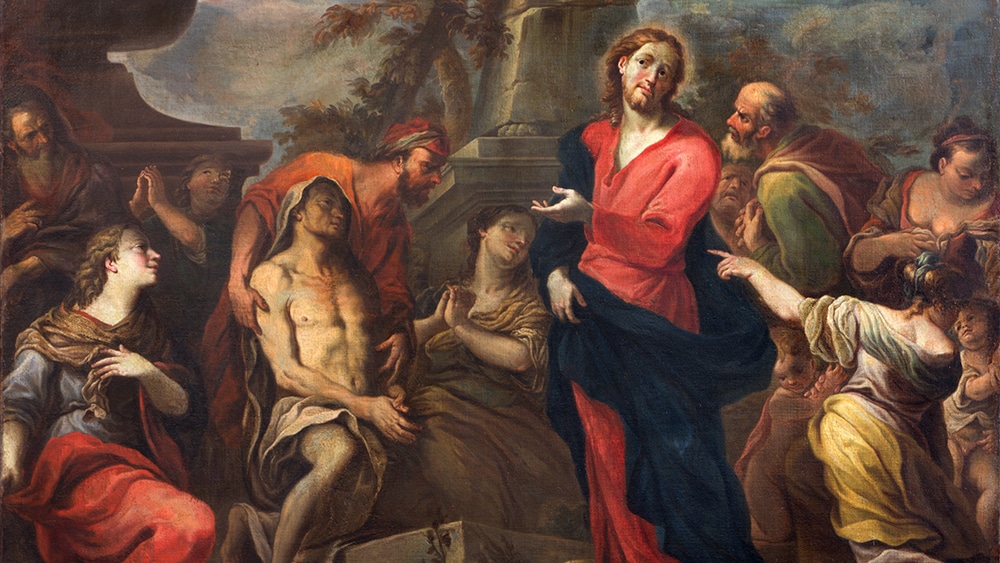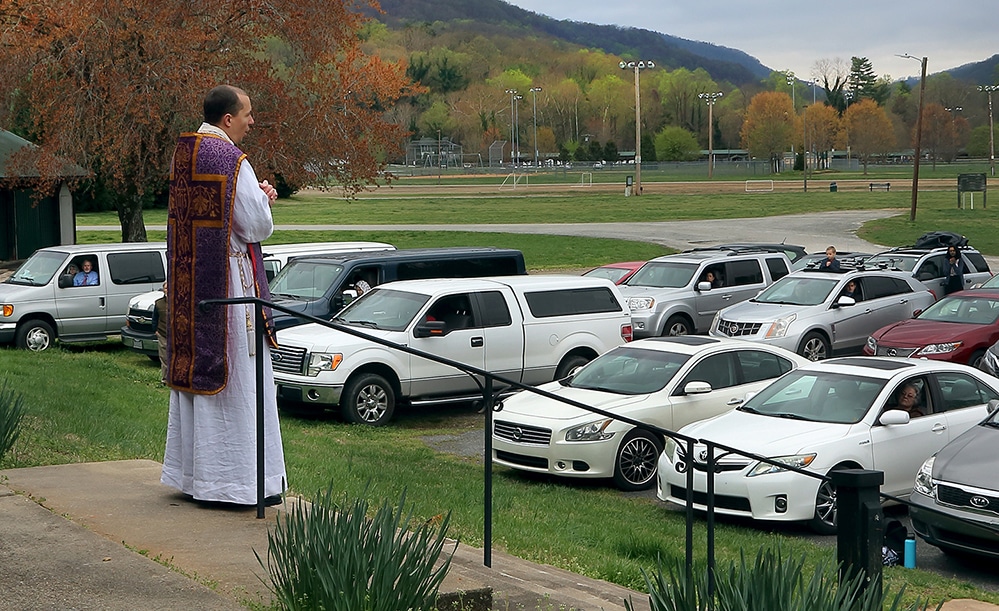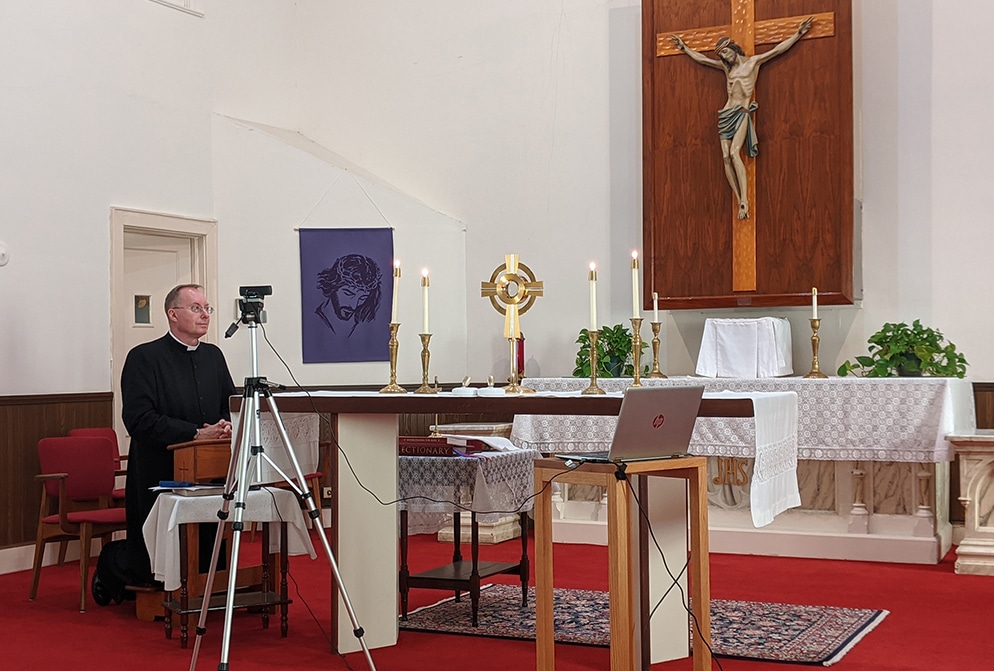 Lazarus had been in the tomb for four days. The evangelist, John, is not just providing a chance detail to the reader. Rather, Lazarus is decidedly dead. His body has begun to decompose, producing a stench.
Lazarus had been in the tomb for four days. The evangelist, John, is not just providing a chance detail to the reader. Rather, Lazarus is decidedly dead. His body has begun to decompose, producing a stench.
The stench of death is an image of hopelessness. Yes, in principle, the Word made flesh could raise Lazarus from the dead. That’s what Martha implies, telling Jesus that she hopes he can still work his wondrous deeds.
But to nearly everyone else, Lazarus’ death seems so definitive. There’s no bypassing the wailing crowds and the tears of Our Lord, Jesus. Lazarus is dead.
We know, of course, that Jesus does raise Lazarus from the dead. But how?
Unlike the man born blind, whose healing is described in detail, we don’t hear much about the technique of the miracle. There’s no mud, no spit, no washing in a river. There is nothing but the words of Jesus praying to the Father, then issuing an order, “Lazarus, come out!” (Jn 11:43).
The signs that Jesus performs in the Gospel of John often refer to the creation of the world in the Book of Genesis. After all, in the prologue of John, the Word is present at the very moment of creation. The enfleshed Word, the splendor of the Father, stills the stormy seas and thereby ordering chaos.
The raising of Lazarus through a word, therefore, recalls the very creation of the world. In Genesis 1, God creates not through labor but through the power of a divine word.
Creation, after all, is not just a moment in time when something comes out of nothing. Creation is God’s involvement in history, the ordering of the world according to the logic of self-giving love. Jesus Christ, as the Word made flesh, re-creates Lazarus, raising him from the dead through the proclamation of a word.
And yet the stench of death doesn’t entirely dissipate. Lazarus will die again. Jesus himself is on his way toward Jerusalem, about to enter his Passion. His flesh will be flayed, ripped apart, his body producing the stench of pain and death. There is the reek of the crowds that demands his death.
| March 29 – Fifth Sunday of Lent |
|---|
|
Ez 37:12-14
Ps 130:1-2, 3-4, 5-6, 7-8
Rom 8:8-11
Jn 11:1-45
|
And yet, there’s hope. God is more powerful than death, able to restore men and women to their original vocation, eternal life, through speech. The Son breathes forth his spirit upon the cross, proclaims through his broken voice that his sacrifice is complete. It is finished. At last, the definitive word has been spoken through the sacrifice of the Son.
And the Son still speaks to this word to us. He still raises men and women from death through the power of the word, “I baptize you in the name of the Father, the Son, and the Holy Spirit.” He still bestows himself to us in what looks like bread, what looks like wine through the power of speech, “This is my body, this is my blood.”
And he still speaks this word today, inviting each of us to rise from the stench of sin to the odor of new life.
It’s not, after all, Lazarus who raises himself. He is trapped in the misery of sin and death. But God’s word sanctifies this impossible stench, offering Lazarus hope.
God’s word, even now, is alive and well. It comes to speak to us right now as we’re trembling with the fear of an epidemic. Sin and death are real, the stench of both still present among us.
But the Word made flesh offers hope. No matter how suffocating the stench of death is, the sweetness of love is what we’re meant to savor.
Timothy P. O’Malley, Ph.D., is the director of education at the McGrath Institute for Church Life at the University of Notre Dame.






